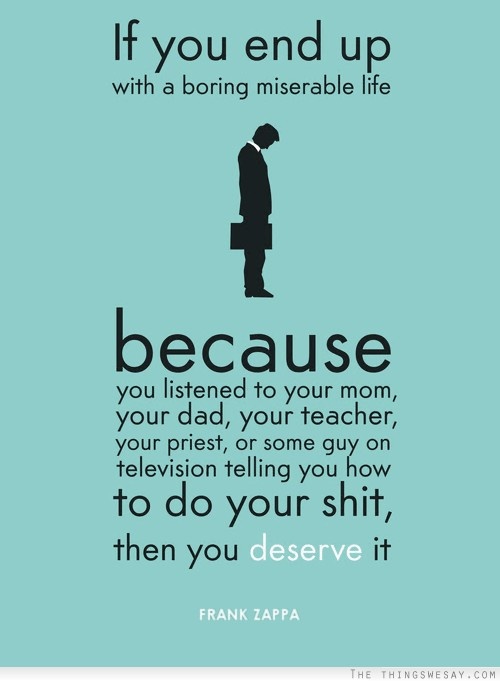The Importance Of Asking Questions
September 21, 2013
We humans are the dominant species on this planet (or so we like to believe; I wouldn't get into the microbial side of the story because this post is not about that).
We have spent thousands of years learning and civilizing ourselves, and that is the reason we, as a species, have gained whatever knowledge we have about the world around us. That is one of the reasons for our survival while many other species came and went. That, and adapting ourselves to changing surroundings; and changing our surroundings to suit us.
When a child becomes old enough to start observing things, notice how curious they are. Everything around them is new; they want to touch it, feel it, taste it. That is how we get the early lessons: fire should not be touched, avoid sharp objects. Fear of heights is evolutionary, from what I remember reading.
The newer non-association theory is that fear of heights is an evolved adaptation to a world where falls posed a significant danger.
It makes sense for a new person to use our collective learning and experience to not go and try out things like poisons, or wild animals for the sake of learning about their dangers.
However, we live in a very different world from even 100 years ago. The world around us is changing much faster than our evolutionary instincts. The dangers that used to be around us are no longer the same. You can hit a car and be fatally hurt, but the likelihood of a bear ripping you apart in the middle of a city is very low.
The fears, then translate into the situations that make us uncomfortable. Public speaking, apparently is a bigger fear than death to many people. Others in the same category can include thinking from a new perspective while rejecting the collective knowledge, voicing our opinion in the midst of majority that is opposed to our ideas; and gasp asking questions.
The only way the world can progress is if the people continuously question and challenge the existing beliefs. Till Rosa Parks asked to be seated in the front, black people in America were not allowed to. Till Ram Mohan Roy questioned the practice of Sati, widows were burnt alive on their husband's pyre. Till someone choose to question the 'world is flat and you fall of the edge' belief, we knew so little of what things were really like.
Despite having strong historical and anecdotal proofs of the fact that asking questions pushes the human race forward, most of us take the safer path. We accept what we are told without questioning ourselves or others as to why we are doing that. If there is one thing I've learnt, it is this: "Why?" is the most important question in the world. And whenever in doubt, ask "Why?". It can provide clarity like few other things can.
The habit of asking questions should be encouraged in children. Being naturally curious, everyone is a scientist when they're children; asking how something works and what would happen if something was done. That is the reason we learn so much in the first 10 years of our lives.
But once we grow up, we start taking things to be the way they are, and just go with the flow. This is where the stagnation sets in.

Never stop questioning. That is the only way we can learn and grow, as individuals, and as a society.